Penerapan Model Pembelajaran Kooperatif Tipe Student Teams Achievement Division (STAD) untuk Meningkatkan Hasil Belajar Matematika di Kelas VIII F SMPN 2 Mataram
Published:
2025-04-25Issue:
Vol. 1 No. 1 (2025): AprilKeywords:
Classroom Action Research, Mathematics Learning Outcomes, STADAbstract
Mathematics is one of the subjects that plays an important role in developing students' logical and systematic thinking. However, in practice, many students experience difficulties in understanding mathematical concepts, which affects their learning outcomes. This study aims to determine the extent to which the implementation of the STAD-type cooperative learning model can improve the mathematics learning outcomes of 8th-grade students at SMPN 2 Mataram. This type of research is Classroom Action Research (CAR) using the Kemmis and McTaggart model conducted in 2 cycles. Data collection techniques include observation and learning outcome tests. The success indicator of this research is that 80% of students can achieve a minimum passing score of 77. The pre-cycle results showed that out of 42 students, only 20 scored above the Minimum Passing Criteria (KKM) with a percentage of 47.6%. In cycle I, there was an improvement of 19.07% where 28 students scored above the KKM with a percentage of 66.67%, and in cycle II, it increased by 14.28%, where the percentage of students scoring above the KKM was 80.95%. It can be concluded that the use of the STAD cooperative learning model successfully improved the mathematics learning outcomes of the students on the topic of circles in class VIII F at SMPN 2 Mataram.
References
Fani, A. A. D., & Effendi, K. N. S. E. (2021). Kemampuan Koneksi Matematis Siswa Ditinjau Dari Kecemasan Belajar Pada Siswa Smp Pada Materi Lingkaran. Jurnal Pembelajaran Matematika Inovatif, 4(1), 137–148. https://doi.org/10.22460/jpmi.v4i1.137-148
Hartati, Y., Husniati, & Rahmawati. (2025). Upaya Meningkatkan Hasil Belajar Matematika Menggunakan Media Flash Card dengan Strategi Student Teams Achievement Division ( STAD ) Pada Materi Bangun Datar Kelas V di Sekolah Dasar. 10.
Hilyatin, N., Sari, M., Mabrur, M. F., Saputra, M. W. H., Mutmainah, M., Sari, N., & Halimatussa’diah, H. (2024). Peningkatan Hasil Belajar Matematika Siswa Kelas I SD Melalui Model Kooperatif Tipe Student Team Achievement Division. Jurnal Ilmiah Profesi Pendidikan, 9(3), 2041–2046. https://doi.org/10.29303/jipp.v9i3.2426
Ismunandar, A. A., Suriyati, S., & Nurjannah, N. (2023). Efektifitas Model Pembelajaran Kooperatif Tipe Stad Dalam Mengembangkan Self Efficacy Matematika Siswa Kelas Viii Smpn 20 Sinjai. JUMPER: Journal of Educational Multidisciplinary Research, 2(1), 41–51. https://doi.org/10.56921/jumper.v2i1.52
Juanda, A. (2018). Pengaruh Metode Pembelajaran STAD terhadap Hasil Belajar Matematika pada Siswa Kelas VIII. Mosharafa: Jurnal Pendidikan Matematika, 7(2), 295–306. https://doi.org/10.31980/mosharafa.v7i2.510
Lestari, W., Pratama, L. D., & Jailani, J. (2018). Implementasi Pendekatan Saintifik Setting Kooperatif Tipe STAD Terhadap Motivasi Belajar Dan Prestasi Belajar Matematika. AKSIOMA : Jurnal Matematika Dan Pendidikan Matematika, 9(1), 29. https://doi.org/10.26877/aks.v9i1.2332
Noor, A. J., & Husna, R. (2017). Meningkatkan Kemampuan Komunikasi Matematis Siswa Menggunakan Model Pembelajaran Kooperatif Tipe Student Teams Achiviement Division (STAD). EDU-MAT: Jurnal Pendidikan Matematika, 4(2). https://doi.org/10.20527/edumat.v4i2.2578
Priatina, Y. (2018). Upaya Peningkatan Hasil Belajar Matematika Menggunakan Model Pembelajaran Kooperatif Tipe STAD pada Materi Bangun Ruang Sisi Datar. JKPM (Jurnal Kajian Pendidikan Matematika), 4(1), 67. https://doi.org/10.30998/jkpm.v4i1.3062
Putri, K. C., & Sutriyono. (2018). Pengaruh Metode Pembelajaran STAD terhadap Hasil Belajar Matematika pada Siswa Kelas VIII. Mosharafa: Jurnal Pendidikan Matematika, 7(2), 295–306. https://doi.org/10.31980/mosharafa.v7i2.510
Rahman, A. A. (2018). Strategi Belajar Mengajar Matematika. In Buku.
Simamora, A. B., Panjaitan, M. B., Manalu, A., Siagian, A. F., Simanjuntak, T. A., Silitonga, I. D. ., Siahaan, A. L., Manihuruk, L. M. E., Silaban, W., & Sibarani, I. (n.d.). Model-Pembelajaran-Kooperatif-Ebook aprido dkk.
Sinaga, D. (2024). Penelitian Tindakan Kelas.
Suardiana, I. M. (2021). Penerapan Model Pembelajaran Kooperatif Tipe Stad Untuk Meningkatkan Hasil Belajar Matematika. Journal of Education Action Research, 5(3), 176–186. https://doi.org/10.23887/jear.v5i3.34677
Suryaningrum, S. S., & Winanto, A. (2023). Perbedaan Efektivitas Model Pembelajaran Kooperatif Tipe Student Teams Achievement Division (Stad) Dan Tipe Jigsaw Terhadap Hasil Belajar Matematika Pada Materi Pecahan Kelas Iv Sd. Euclid, 10(1), 133. https://doi.org/10.33603/e.v10i1.8547
Tampubolon, J., Atiqah, N., & Panjaitan, U. I. (2019). Pentingnya Konsep Dasar Matematika pada Kehidupan Sehari-Hari Dalam Masyarakat. Program Studi Matematika Universitas Negeri Medan, 2(3), 1–10.
Author Biographies
Yusnia Alfiani, Universitas Mataram
Junaidi Junaidi, Universitas Mataram
Maksud Maksud, SMPN 2 Mataram
License
Copyright (c) 2025 Yusnia Alfiani, Junaidi Junaidi, Maksud Maksud

This work is licensed under a Creative Commons Attribution-ShareAlike 4.0 International License.
Authors who publish with Jurnal Profesi Guru Indonesia (JPGI) agree to the following terms:
- Authors retain copyright and grant the journal right of first publication with the work simultaneously licensed under a Creative Commons Attribution License 4.0 International License (CC-BY-SA License). This license allows authors to use all articles, data sets, graphics, and appendices in data mining applications, search engines, web sites, blogs, and other platforms by providing an appropriate reference. The journal allows the author(s) to hold the copyright without restrictions and will retain publishing rights without restrictions.
- Authors are able to enter into separate, additional contractual arrangements for the non-exclusive distribution of the journal's published version of the work (e.g., post it to an institutional repository or publish it in a book), with an acknowledgement of its initial publication in Jurnal Profesi Guru Indonesia (JPGI).
- Authors are permitted and encouraged to post their work online (e.g., in institutional repositories or on their website) prior to and during the submission process, as it can lead to productive exchanges, as well as earlier and greater citation of published work (See The Effect of Open Access).




